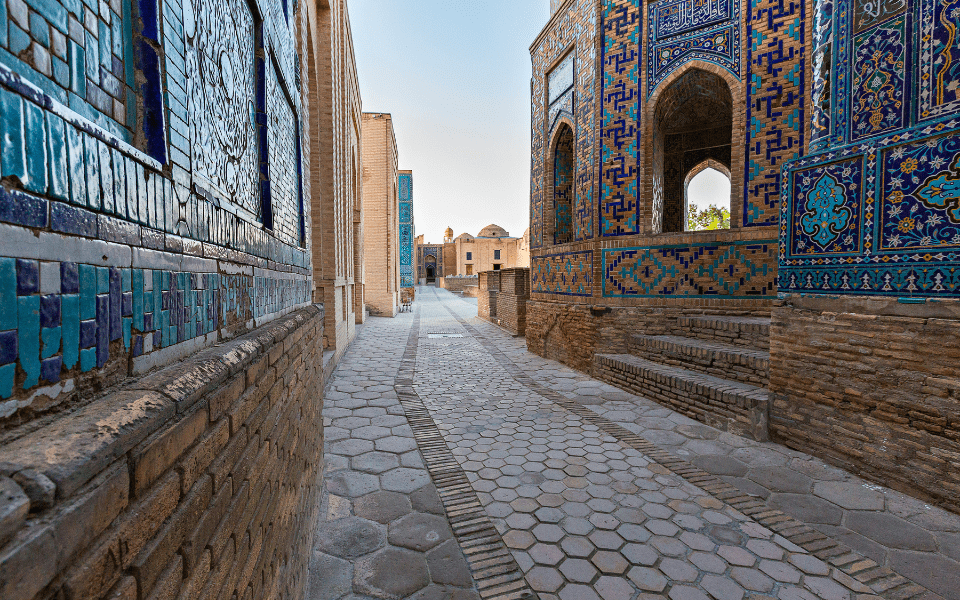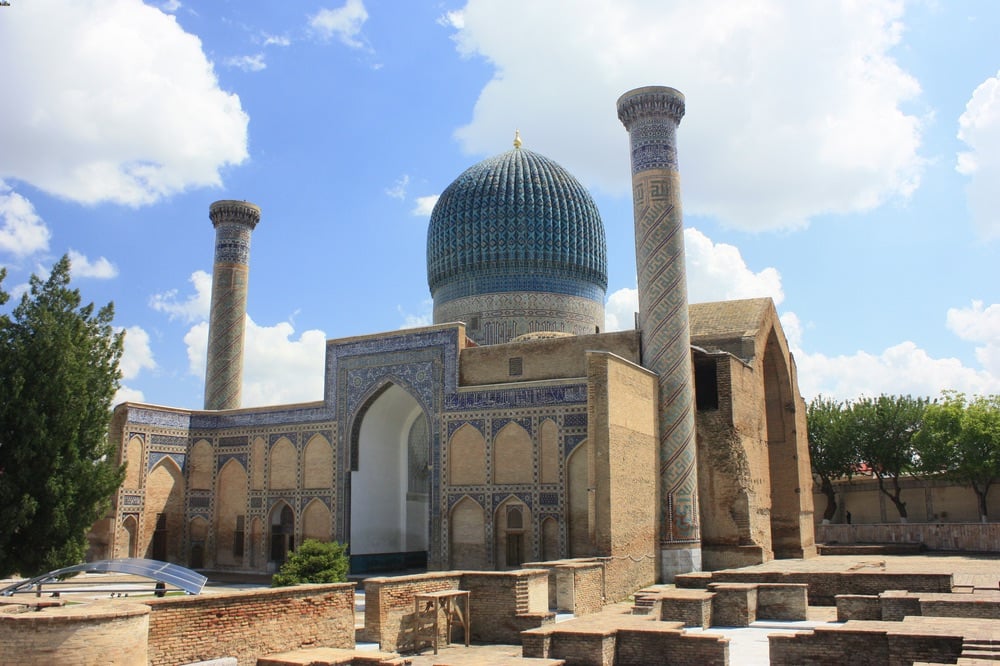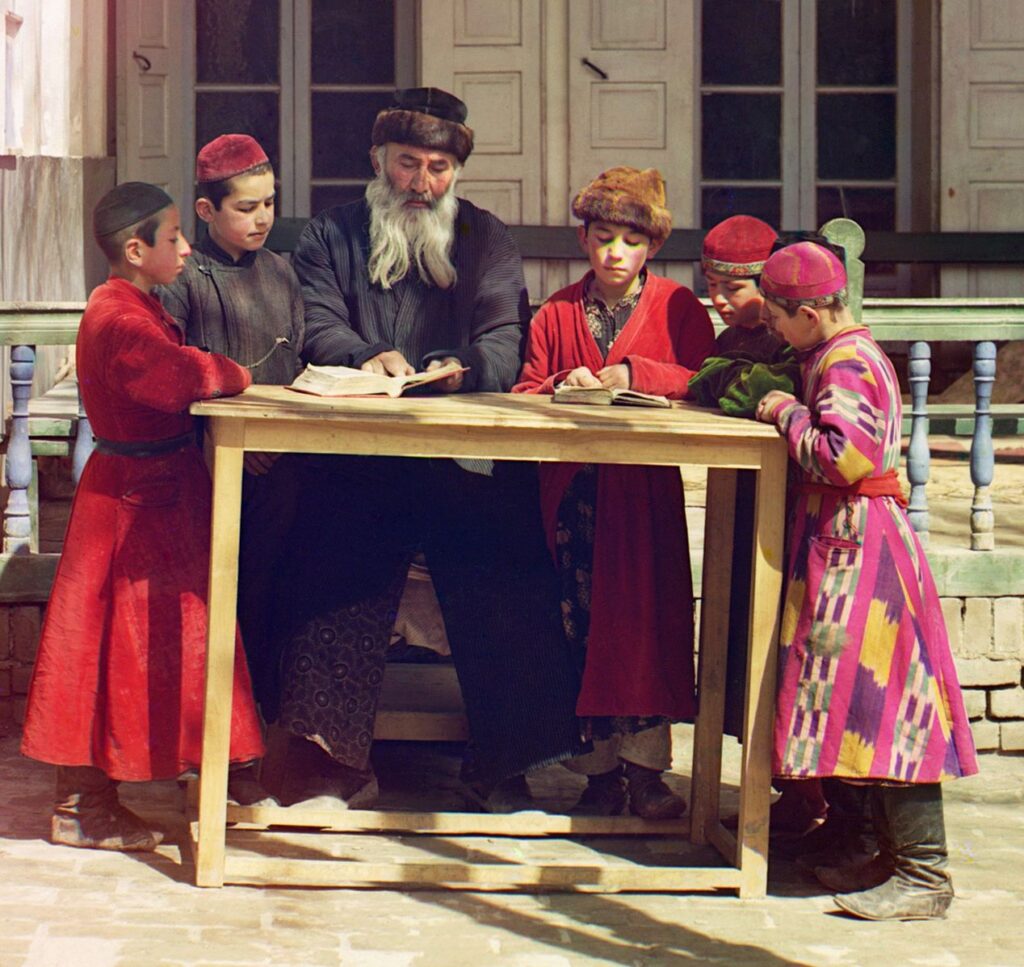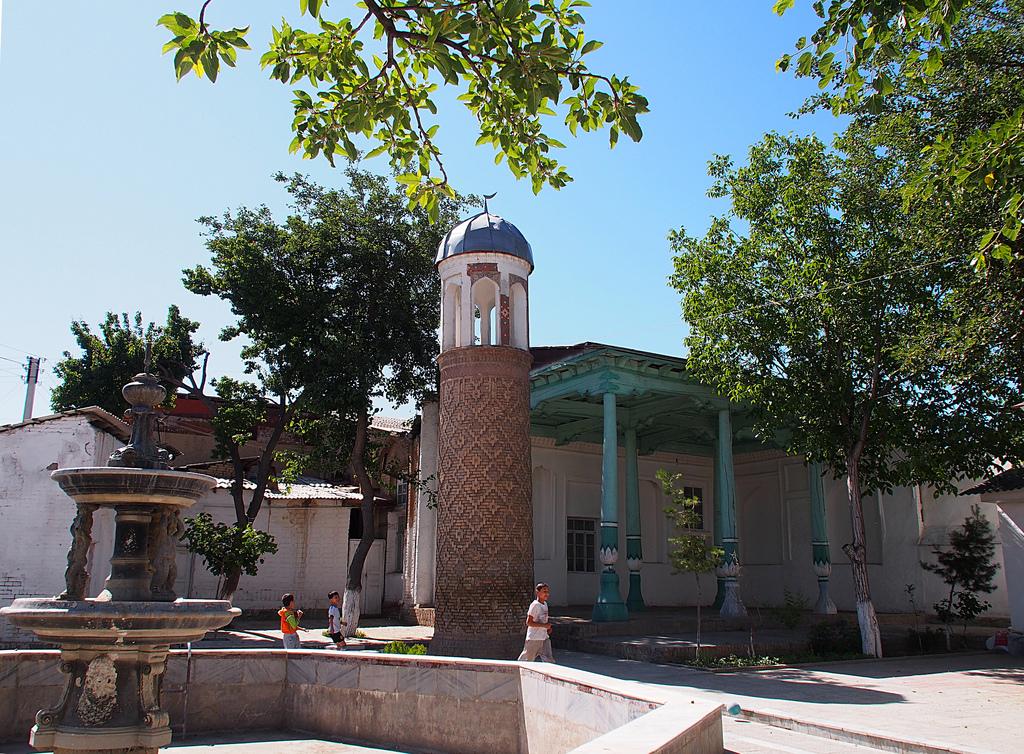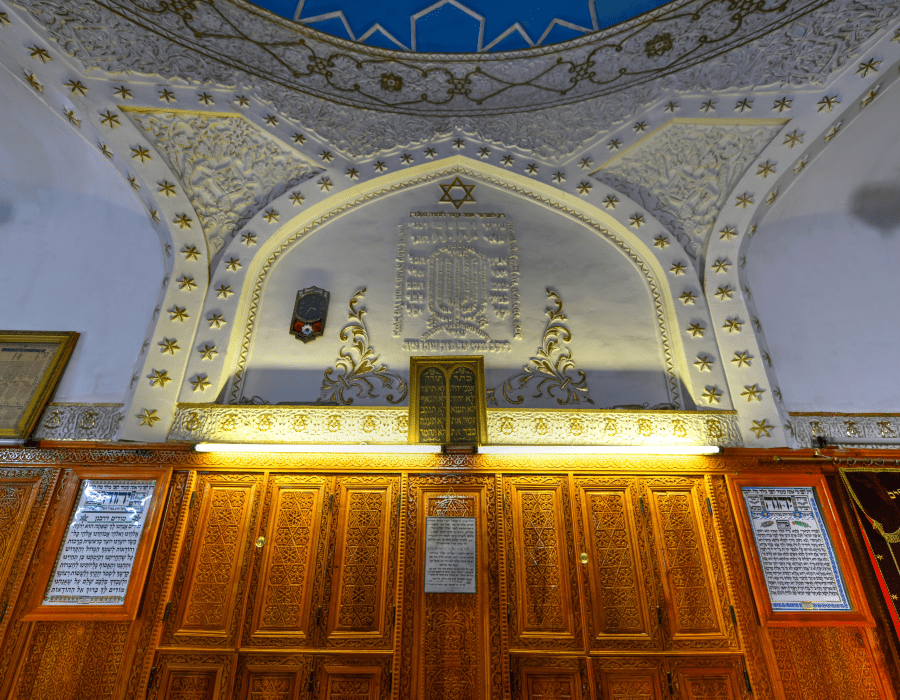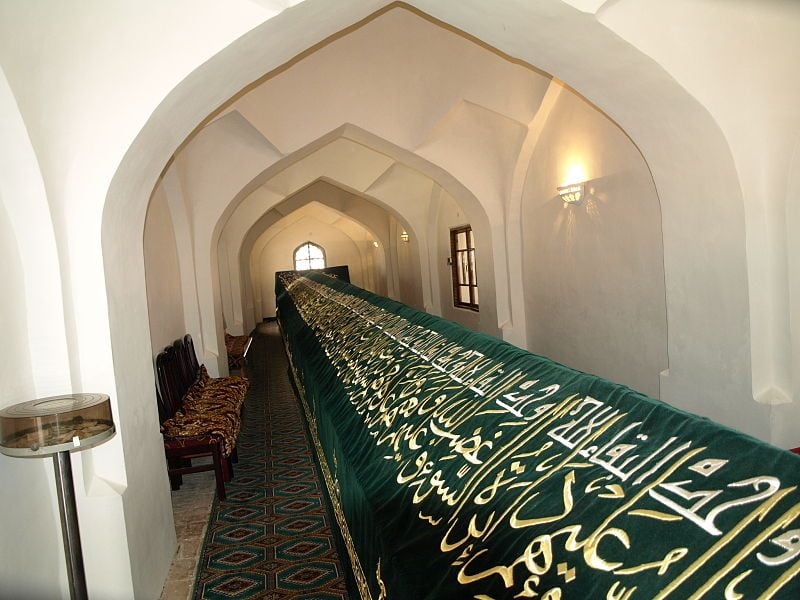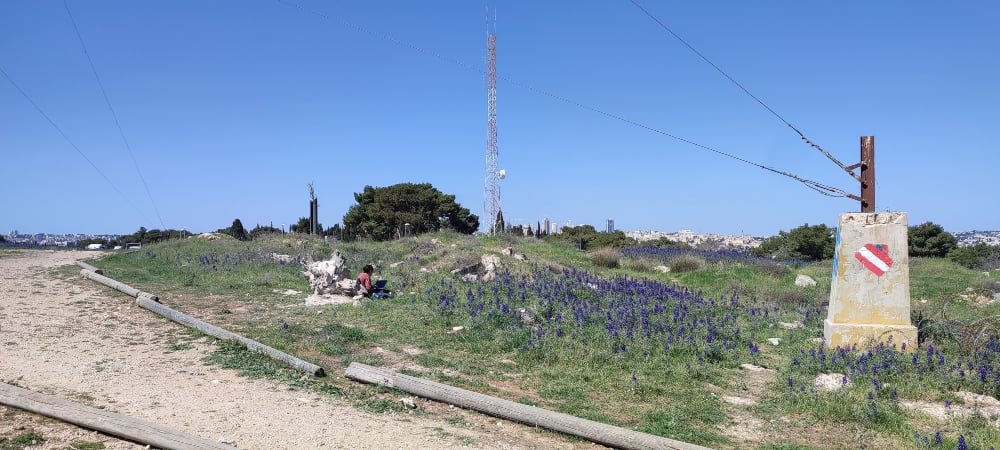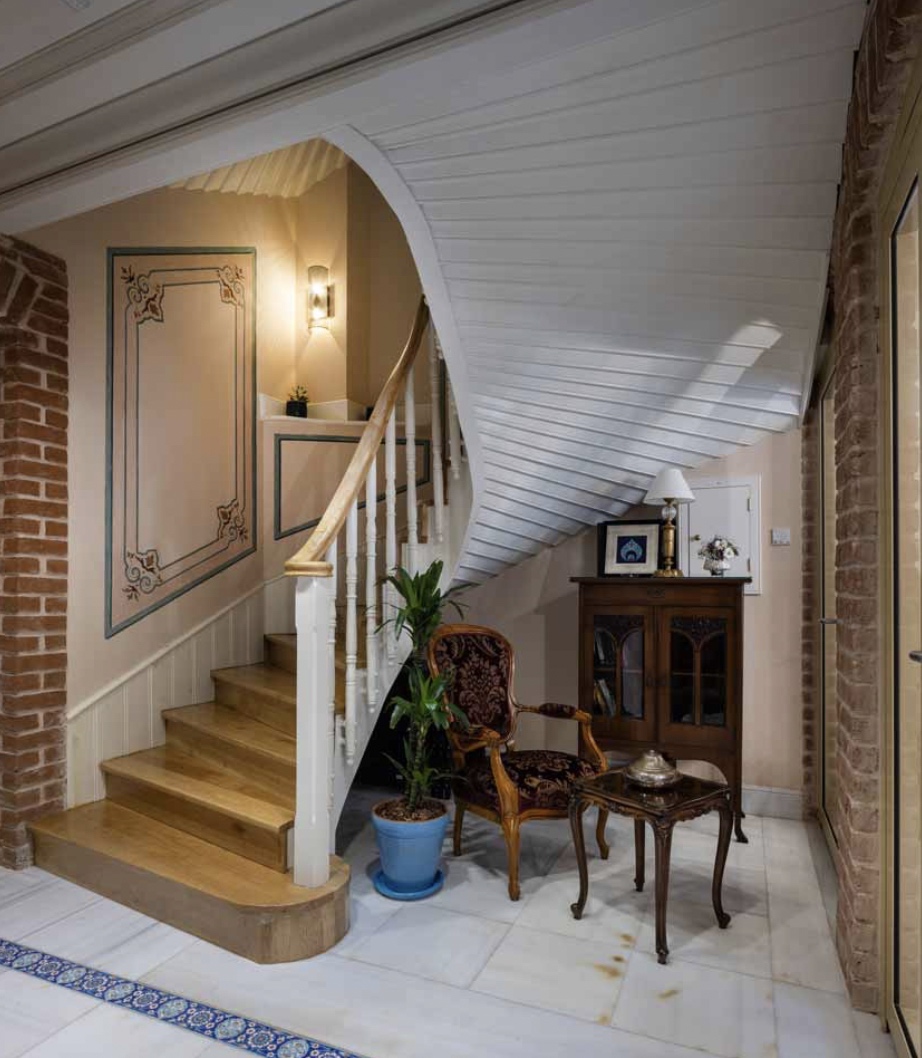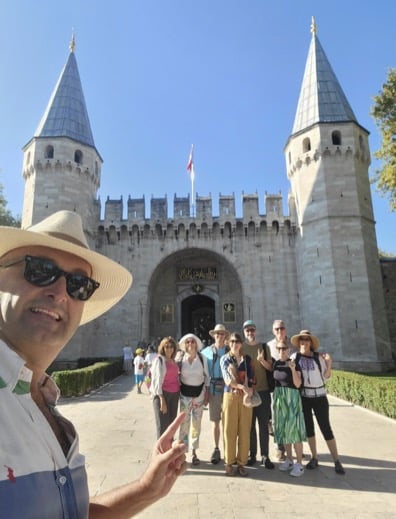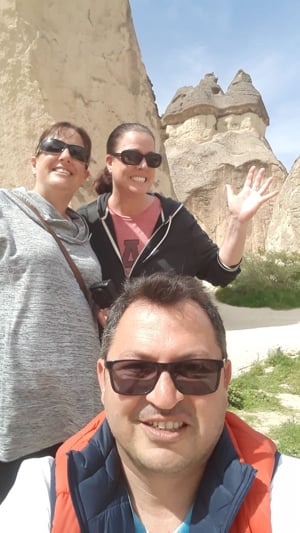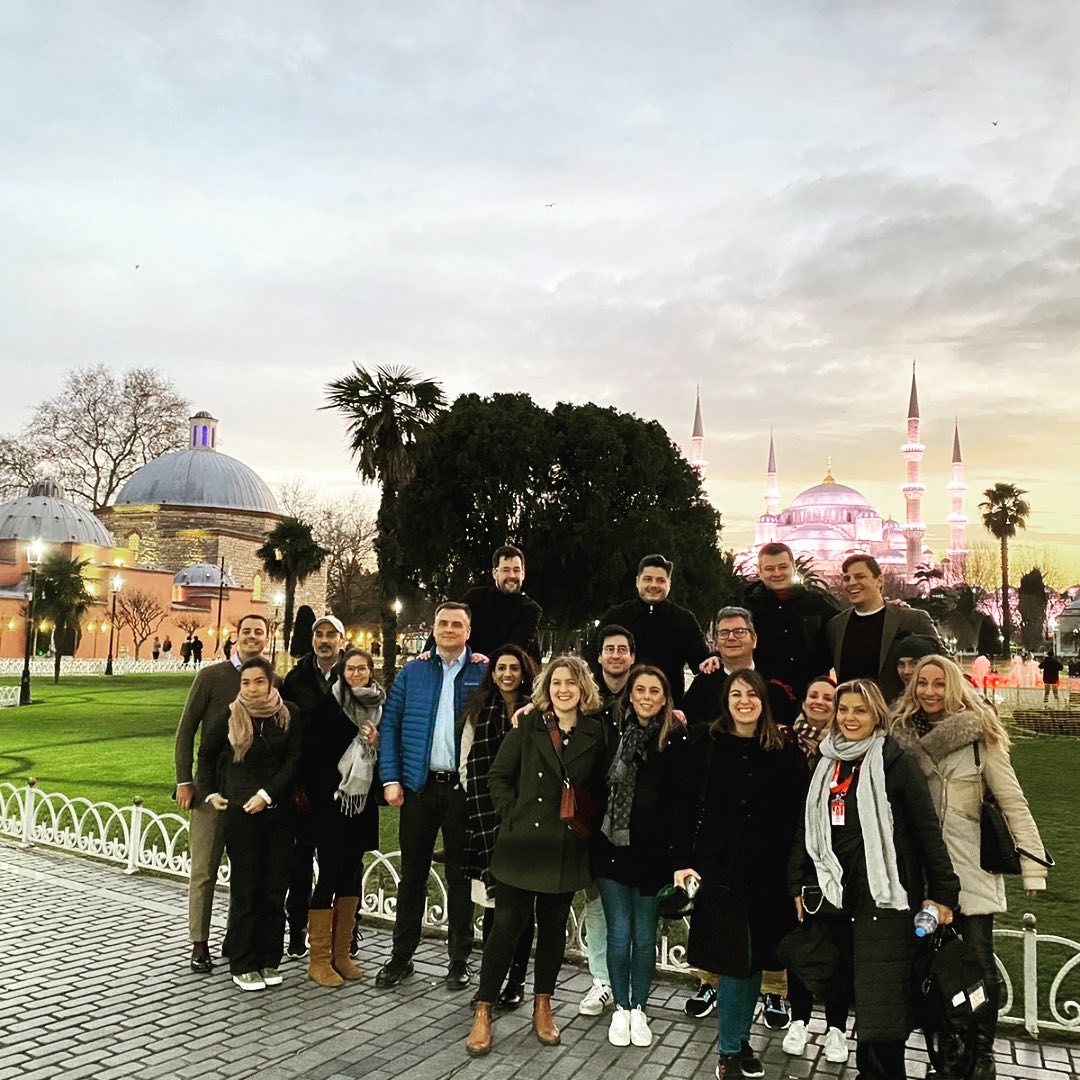Gaius Julius Caesar (12 July 100 BCE – 15 March BCE) was given military support by Jews at a critical moment in his fight in Egypt against Pompey. Due to this cooperation, Caesar granted religious tolerance and security for Jews.
Thus, both gave Jews freedom to practice their religion, without interference granted them security and had a positive view of them. Rome will mark the Ides of March and the assassination of Julius Caesar on March 15, 2023. While many tours in the eternal city will focus on this historical re-enactment of that fateful day in 44 BCE. The licensed tour guides from the Jewish community of Rome, such as Marco Misano, offers educational Jewish heritage walking tours in Rome and throughout Italy from a Jewish perspective. As the anniversary of the Ides of March soon approaches, I reached out to historian Samuele Rocca in Jerusalem to ask him about the Julius Caesar and the Jews of Rome.
When the Egyptians besieged Julius Caesar in Alexandria, planning to murder him just as they had killed Pompey, the Jews living in Judaea, modern Israel sent in over 3,000 soldiers to help. In gratitude, when Caesar took over Rome, he changed some of the civil laws, such as, to allow the Jews to better observe the Sabbath and revoke the harsh decrees and taxation. How did this impact the Jews of Rome?
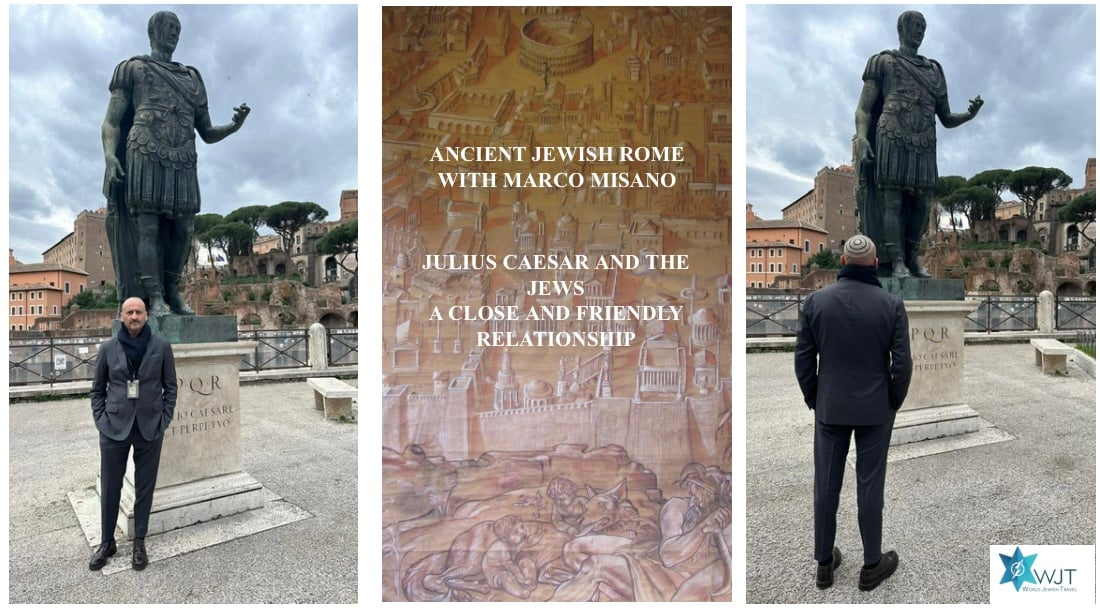
Historian Samuele Rocca:
The Jews living in the Rome of the Late Republic were active in politics. The most important sources on the participation of the Jews living in Rome in the years before the civil war between Pompey and Caesar to the political life of the city are Cicero and Suetonius. Cicero Pro Flacco presents us with much data on the Jews living in Rome. Some of it can help us in reconstructing the legal and social position of the Jews living in Rome in 59 B.C.E. Thus Cicero writes that the Jews “stick together”, that “every year it was customary to send gold to Jerusalem on the order of the Jews from Italy and from all our provinces” (Cicero, Pro Flacco 28, 66-69). It seems then the Jews living in Rome in 59 B.C.E., had a certain type of communal life, as the reader was accustomed to think that the Jews “stick together” and that they sent each year from Rome as well as from Italy the Half – Shekel too the Jerusalem Temple. This could have been possible only if the Jews of Rome would have been organized together in some way, as to collect money from various sources, to deposit it and to send it all together, thus organizing the effort through land or sea to Judaea and Jerusalem could have been possible through a communitarian effort. Thus, it seems that the Jewish community of Rome in the Late Republic was organized following informal lines, although the Jews had the right as individuals or as a group to send the Half – Shekel to the Jerusalem Temple.
However, Cicero’s text is important because it shows the political activities of the Jews. Cicero thus accuses Laelius, who directed the defense that brought the Jews, knowing “what a big crowd (turba)” it is, and “how influential they are in informal assemblies (contiones)”. Cicero hints that the Jews could be brought together to form a crowd, and that they could be active in informal assemblies (contiones), as opposed to comitia, or the legally recognized organization of the Roman People to elect magistrates and to vote a law. This makes clear that most of the Jews involved were just foreigners or liberti, who had not the right to take part in comitia. On the other hand, from this group are excluded the Jews who were slaves, and the few Jews who were Roman citizens. The first as slaves could not have taken part in these assemblies, and the latter were too few to influence a contio, and anyway they could participate in the various comitia.
The Jews acted like that because they had a certain clientelar obligation, towards Pompey and Gabinius, supporting them informally in contiones and formally during comitia. Pompey, after he defeated Aristobulus II, the Hasmonean prince who dared to defy Rome, had Hyrcanus II, his brother appointed as High Priest of Judaea. As the ruler of Judaea, at least till Pharsalus, Hyrcanus II was Pompey’s cliens or liege. According to Appian, Hyrcanus II’s soldiers could be found in Pompey army fighting at Pharsalus. This implies only that Hyrcanus, as cliens of Pompey, had to take his side during the civil war against Caesar. Obviously Pompey death absolved Hyrcanus II from any further obligation towards Pompey or his party (Appian, Civil Wars II, 71). It seems that, as Josephus hints, Hyrcanus II collaborated with Gabinius as well, during the later tenure in 58 B.C.E. in his campaign against Ptolemaic Egypt. According to Josephus, Gabinius was assisted by Antipater and Hyrcanus in his campaign against Egypt. He was supplied with grain, arms and money by Antipater. Moreover the Jews of Pelusium were won over and acted as guards of entrances of Egypt (Josephus, AJ XIV, 98-99). The Jews living in Rome, therefore, would have been clientes of Pompey, as their far away ruler, the High Priest Hyrcanus II, to whom they sent each year the Half-Shekel was his cliens. Moreover Pompey was probably the only politician who could have pushed for a legalization of the right of the Jews to send money from Rome to the Temple. However, some of the Jews living in Rome were clientes of Gabinius. Although Gabinius was in the East as consul in 58 B.C.E., he was before together with Pompey as one of his legati. It is worthwhile to remember that in this period, when Cicero wrote the Pro Flacco, nor Pompey or Gabinius were exactly in good terms with Cicero. Thus when in 58 B.C.E. Cicero was exiled, under the consulship of Gabinius and Piso, Pompey did not help Cicero in any way.

Yet, once Civil War came, the Jews stood by Julius Caesar, Pompey’s legitimate rival. In fact the Jews living in Rome just followed the steps of their leader in Judaea, the High Priest Hyrcanus II, who switched his allegiance from Pompey to Julius Caesar after the latter defeat at Pharsalus and death in Egypt, which absolved them from any allegiance to Pompey’s party. It seems that Julius Caesar tried to gather the support of the Jews living in Rome already at the beginning of the Civil War. Therefore Julius Caesar showed his support for the Hasmonean pretender Aristobulus II, then living in Rome as exile. Aristobulus II was sent by Julius Caesar with two legions in Syria, but he was poisoned by the Pompeians. His son Alexander met a similar fate, as he was soon afterwards beheaded by Scipio at Antioch (Josephus, AJ XIV, 123-125). Julius Caesar could not have done otherwise, as Hyrcanus II, the legitimate Hasmonean ruler, stood firm by Pompey. Besides, Julius Caesar wanted to support Aristobulus II, because he was aware that the Jews living in Judaea preferred him to his brother, perceived as a weak figure. It was probably through the auspices of Gabinius that Julius Caesar got in touch with Aristobulus II. When he was governor of Syria, Aristobulus and his son Alexander tried to uphold the flag of rebellion against Rome twice, but they were easily defeated. Gabinius showed pity and refrained from harsh actions, sending the two Hasmonean pretenders back to their Roman golden exile. It seems that Hyrcanus II stood by Julius Caesar through the offices of Antipater his main councilor, who had a special relationship with Mark Antony, Master of the Horse, second in command to the dictator Julius Caesar. Mark Antony, as a young man served in Judaea in the wake of Gabinius and there he became friend with Antipater, the father of the future King Herod the Great. Josephus, taking as primary source the historical writing of Strabo of Amaseia, narrates that ”after Pompey was dead, and after that victory Caesar had gained over him, Antipater, who managed the Jewish affairs, became very useful to
Caesar when he made war against Egypt, and that by the order of Hyrcanus; for when Mithridates of Pergainus was bringing his auxiliaries, and was not able to continue his march through Pelusium, but obliged to stay at Askelon, Antipater came to him, conducting three thousand of the Jews, armed men….So Mithridates marched out of Syria, and came to Pelusium…(which) was taken.
But it happened that the Egyptian Jews, who dwelt in the country called Onias, would not let Antipater and Mithridates, with their soldiers, pass to Caesar; but Antipater persuaded them to come over with their party, because he was of the same people with them, and that chiefly by showing them the epistles of Hyrcanus II the high priest, wherein he exhorted them to cultivate friendship with Caesar, and to supply his army with money, and all sorts of provisions which they wanted; and accordingly, when they saw Antipater and the high priest of the same sentiments, they did as they were desired. And when the Jews about Memphis heard that these Jews were come over to Caesar, they also invited Mithridates to come to them; so he came and received them also into his army. And when Mithridates had gone over all Delta, as the place is called, he came to a pitched battle with the enemy, near the place called the Jewish Camp. Now Mithridates had the right wing, and Antipater the left; and when it came to a fight, that wing where Mithridates was gave way, and was likely to suffer extremely, unless Antipater had come running to him with his own soldiers along the shore, when he had already beaten the enemy that opposed him; so he delivered Mithridates, and put those Egyptians who had been too hard for him to flight. He also took their camp, and continued in the pursuit of them. He also recalled Mithridates, who had been worsted, and was retired a great way off; of whose soldiers eight hundred fell, but of Antipater's fifty. So Mithridates sent an account of this battle to Caesar, and openly declared that Antipater was the author of this victory, and of his own preservation, insomuch that Caesar commended Antipater then, and made use of him all the rest of that war in the most hazardous undertakings; he happened also to be wounded in one of those engagements…When Caesar, after some time, had finished that war … he honored Antipater greatly, and confirmed Hyrcanus in the high priesthood; and bestowed on Antipater the privilege of a citizen of Rome, and a freedom from taxes (Josephus, AJ XIV, 127-136).

Julius Caesar recognized with a series of decrees approved during two senatus consulta held respectively in October 47 BC and in 44 BC, during his dictatorship. various privileges to Hyrcanus II, evidently as a result of the help of Antipater. The Roman dictator confirmed Hyrcanus II as high priest, and furthermore appointed him ethnarch, or ruler of all the Jews living in the territories ruled by Rome. The territories under Hasmonean rule, Judea, Idumea, Galilee, and part of Samaria and Perea, were partially exempted from paying tribute to Rome, for example during the Sabbatic year. Furthermore, the treaty of alliance and friendship with Rome, which existed before Pompey treacherously put an end to the independence of Judaea was renewed and Judea was given the title of socius and amicus Populi Romani, that is, an ally of the Roman people. The walls of Jerusalem, demolished by Pompey, were rebuilt. Besides, Antipater and his family were given Roman citizenship, a very precious gift (Josephus, AJ XIV, 192-212).
Moreover, Julius Caesar gave ample privileges to the Jews living in Rome. In fact, the legal and successful framework for a communitarian organization was created during Julius Caesar’s dictatorship. Thus, although Julius Caesar in fact restricted the number and the activities of the collegia in Rome, the corporate bodies, which were in the Roman Republic the framework for any type of communal organization, the Roman leader viewed the Jewish communities as licit and legal communities. Hence, during the years 49 – 44 B.C.E., Julius Caesar renewed with the Lex Iulia De Collegis the earlier prohibitions passed by the Senate against the various corporate organizations and guilds or collegia, dissolving most of the collegia, with the exception of the oldest (Suetonius, Divus Julius I, 42).
It seems, however, that the Roman dictator legalized in Rome the Jewish communities as collegia licita. The only document, quoted by Josephus, which refers to the privileges given by Julius Caesar specifically to the Jewish communities of Roman Italy is a decree sent by Publius Servilius Isauricus to the city of Parium in 44 B.C.E. slightly after Julius Caesar’ murder (Josephus, AJ XIV, 210-212). This document is part of a collection of various decrees collected by Josephus, which concern the Jewish communities of the Province of Asia, dated to the years of the dictatorship of Julius Caesar. The decree states clearly that although Julius Caesar in the Lex Iulia forbade all religious societies, or collegia, which Josephus calls thiasoi, however an exception was made for the Jews living in Roman Italy. According to Josephus, "for even Caius Caesar, our imperator and consul, in that decree wherein he forbade the Bacchanal rioters to meet in the city, did yet permit these Jews, and these only, both to bring in their contributions, and to make their common suppers". The decree, which concerns the Jews living in Parium, mentions only indirectly the legal privileges enjoyed by the Jewish communities of Roman Italy.

However, the decree mentions only indirectly the legal privileges enjoyed by the Jewish communities in Roman Italy. Yet, a careful reading of the various decrees collected by Josephus, already mentioned, which concern the Jewish communities of the Province of Asia, allow to reconstruct these privileges. From then onwards, Jews living in Roman Italy would be permitted to create collegia licita, or communities, as they were permitted to assemble, to collect contribution of money for the Temple of Jerusalem, and to hold common meals. However, once the passage of Suetonius and this passage of Josephus are compared, there is a problem, namely that Josephus quotes a decree and not a law, the Lex Julia De Collegis. Possibly, Julius Caesar on one hand enacted the law that allowed a few collegia legittima, while forbidding many others. There is no motivation to think that this law also legitimated Jewish community, recognizing them as collegiate institutions as it was formulated in general terms. Possibly, when the Jews of Rome wanted to secure a specific legal recognition for their communities, Julius Caesar ruled through a decree that the legal status of the Jewish communities in Rome would correspond to that of the collegia legittima. And this is the decree mentioned by Josephus, and it can explain why the passage of Josephus refers to a decree and not to a law. No wonder that Suetonius (Suetonius, Divus Julius I, 84: 5) reports the sincere mourning of the Jews at the funeral pyre of Julius Caesar, writing that“At the height of the public grief a throng of foreigners went about lamenting each other after the fashion of this country, above all the Jews, who even flocked to the funeral pyre for several successive nights.”
As the prominent American Jewish scholar Harry J. Leon once said “The Jewish community of Rome has had a longer continuous existence than any other community of Europe—since the Jews have lived in that city for more than two thousand years—yet no complete study of its ancient period has yet been extensively made.” For this very reason, I have been interviewing world renowned experts of the Jews during antiquity to consider and specifically evaluate the little-known history of the Jews of Rome and their contribution to the foundation of the eternal city.
